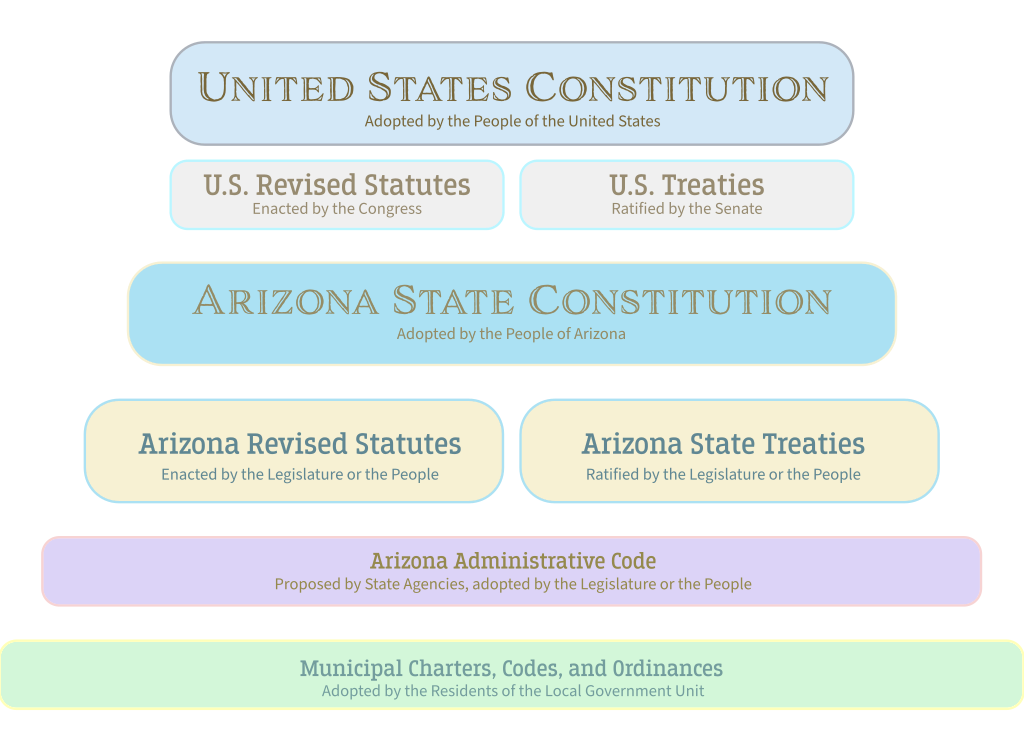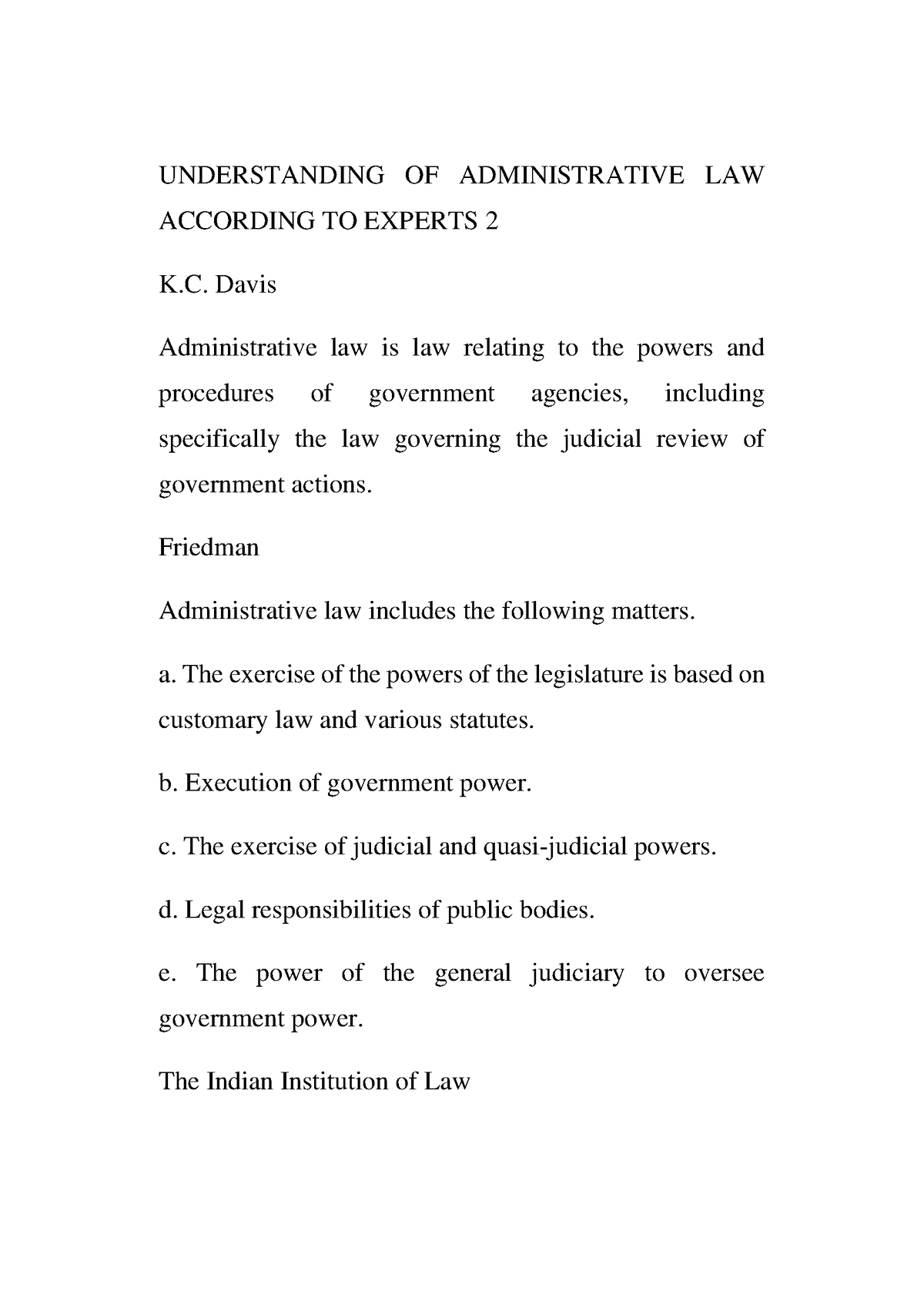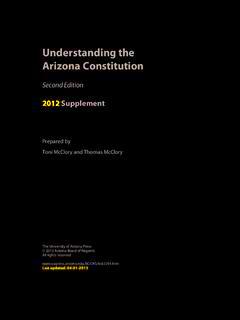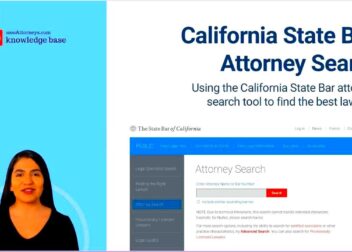Understanding Arizona Administrative Law
The government agencies of Arizona act in accordance to the State’s Administrative Law which regulates their dealings with members of the society. This is an important area of law as it ensures that there is a fair balance between the state and its people hence equitable application of rules to all individuals under the law. In essence, it is a framework for ensuring fair, consistent, and transparent agency actions. It outlines the rules and procedures that must be followed by these agencies when making decisions regarding individuals or businesses.
Key Features of Arizona Administrative Law

A few important aspects of the Arizona Administrative Law exist that are responsible for its structure and operation:
- Rulemaking: Agencies have the authority to create rules and regulations that carry the force of law.
- Adjudication: Agencies can resolve disputes through hearings and decision-making processes, often involving administrative law judges.
- Enforcement: Agencies enforce compliance with their rules, which can include penalties for violations.
- Judicial Review: Individuals can appeal agency decisions in court, ensuring there’s a mechanism for oversight.
- Public Participation: The law promotes transparency and allows the public to participate in the rulemaking process through comments and hearings.
Public trust in government operations is critical to any co8untry’ administrative processes, and these features guarantee for that as well as efficiency.
Importance of Administrative Agencies in Arizona

In the legal landscape of Arizona, administrative agencies hold a significant position. They are of great importance for the following reasons:
- Expertise: Agencies consist of professionals with specialized knowledge in specific areas, such as environmental regulation, health services, and transportation.
- Regulation and Oversight: They regulate various sectors, ensuring compliance with laws that protect public health, safety, and welfare.
- Efficiency: Agencies streamline processes, handling matters that would otherwise burden the courts, leading to faster resolutions.
- Adaptability: Administrative agencies can quickly adjust regulations to respond to emerging issues or changes in public policy.
To conclude, the administration agencies play an essential role in enforcing laws and legislation affecting ordinary life in Arizona hence they form the backbone of state’s government.
Common Procedures in Arizona Administrative Law
It is important for anyone dealing with state agencies to have an understanding of the general procedures applied in Arizona Administrative Law. This is because these procedures guarantee that fairness and consistency inform the decision-making processes of such agencies. In general, they can be divided into several basic steps:
- Notice of Proposed Action: Before any rule is finalized, agencies must provide a notice to the public, detailing what the rule entails and why it’s being proposed.
- Public Comment Period: During this time, individuals and organizations can submit their views on the proposed rule. This is a critical part of the process as it allows for community input.
- Public Hearings: Agencies often hold hearings where interested parties can present their arguments, ask questions, and engage in discussions. These hearings promote transparency and accountability.
- Final Rule Adoption: After considering public comments and testimony, agencies will adopt the final rule, which becomes enforceable.
- Implementation: Agencies then implement the rule, informing the public of any new requirements or changes in policy.
Summary: A systematic framework must be employed in order to guarantee that every individual is given an equal opportunity to engage and choices are taken after assessment of different perspectives comprehensively.
Role of Administrative Law Judges in Arizona
The ALJs hold a crucial part in the administrative process in Arizona. They act as fair-minded adjudicators in conflicts about state authorities. The importance of their role can be summarized below:
- Impartiality: ALJs are independent of the agencies they serve, ensuring that all parties receive a fair hearing.
- Fact-Finding: They conduct hearings, gather evidence, and listen to testimonies to make informed decisions based on the facts presented.
- Legal Expertise: ALJs are trained in administrative law and understand complex regulations, allowing them to navigate legal issues effectively.
- Decision-Making: After reviewing the evidence, they issue decisions or recommendations that may become binding unless appealed.
- Public Accountability: By serving as a check on agency actions, ALJs help ensure that agencies adhere to established laws and regulations.
In essence, ALJs have an essential function in the conservation of impartiality within the administrative procedure thereby providing people with assurance to pursue justice during conflict.
Appealing Administrative Decisions in Arizona
In case you have any disagreement with any administrative decision in Arizona, it is crucial to understand how to appeal. Generally this is what happens:
- Eligibility: First, ensure that you have the right to appeal. Generally, individuals affected by a decision have the standing to appeal.
- Notice of Appeal: File a notice of appeal with the appropriate court, usually within 30 days of the agency’s decision. It’s crucial to meet this deadline.
- Record Review: The court will review the record from the agency, including all documents, evidence, and transcripts from hearings.
- Legal Arguments: You may present legal arguments as to why the decision should be overturned. This can include demonstrating errors in the agency’s interpretation of the law.
- Judicial Review: The court will then make a ruling, which may affirm, reverse, or remand the case back to the agency for further proceedings.
Seeking legal advice before making an appeal is vital because the process is complex; you need a comprehensive understanding of your rights and choices so as to successfully question decisions made against you.
Challenges in Arizona Administrative Law
While there is an intention behind establishing a framework that will promote fairness and transparency there are several obstacles which tend to arise. Here are some typical challenges encountered:
- Complexity of Regulations: Many regulations are intricate and difficult to understand, making it hard for individuals to know their rights or how to comply.
- Resource Limitations: Agencies often operate under tight budgets, which can lead to delays in processing and implementing decisions.
- Access to Information: Not all citizens are aware of their rights within the administrative process, leading to unequal access to justice.
- Judicial Review Limitations: The scope for appealing agency decisions can be limited, which may prevent individuals from effectively challenging unfavorable outcomes.
- Political Influence: Administrative decisions can sometimes be influenced by political agendas, which may undermine the impartiality of the process.
To tackle these hurdles, there is a need for continuous actions to simplify the laws, enhance people’s understanding, as well as ensuring equal and open administrative proceedings for every Arizona resident.
Frequently Asked Questions about Arizona Administrative Law
Arizona Administrative Law raises numerous questions among people. What does it mean? In what way does it affect them? These are among the frequently asked questions:
| Question | Answer |
|---|---|
| What is Arizona Administrative Law? | It governs the actions of state agencies and regulates how they interact with the public. |
| How can I appeal an agency decision? | You can file a notice of appeal in the appropriate court within 30 days of the decision. |
| What role do Administrative Law Judges play? | ALJs act as impartial decision-makers during disputes involving state agencies. |
| Are there public hearings? | Yes, public hearings are often held to gather community input on proposed rules. |
| Can I represent myself in an appeal? | Yes, but seeking legal advice is recommended due to the complexities involved. |
I can confidently state that these FAQs will address most of the commonly asked questions thereby providing an elaborate understanding of the Arizona Administrative Law.
Conclusion on Arizona Administrative Law
To sum up, the significance of Arizona Administrative Law cannot be overstated when it comes to the proper functioning of state agencies. It determines the procedure for making rules, resolving disputes and enforcing them in a way that provides a balance between government powers and individual rights. Even though it is faced with challenges such as complexity and lack of resources, this body of law continues to be important in ensuring stability as well as responsibility in public administration.
Such laws empower us as citizens to interact with our government effectively. Knowledge is the main thing be it appealing agency decisions or public comment periods or just getting into these processes. Arizona Administrative Law is not only a set of rules but also a platform that safeguards our freedoms and encourages fairness in life.


